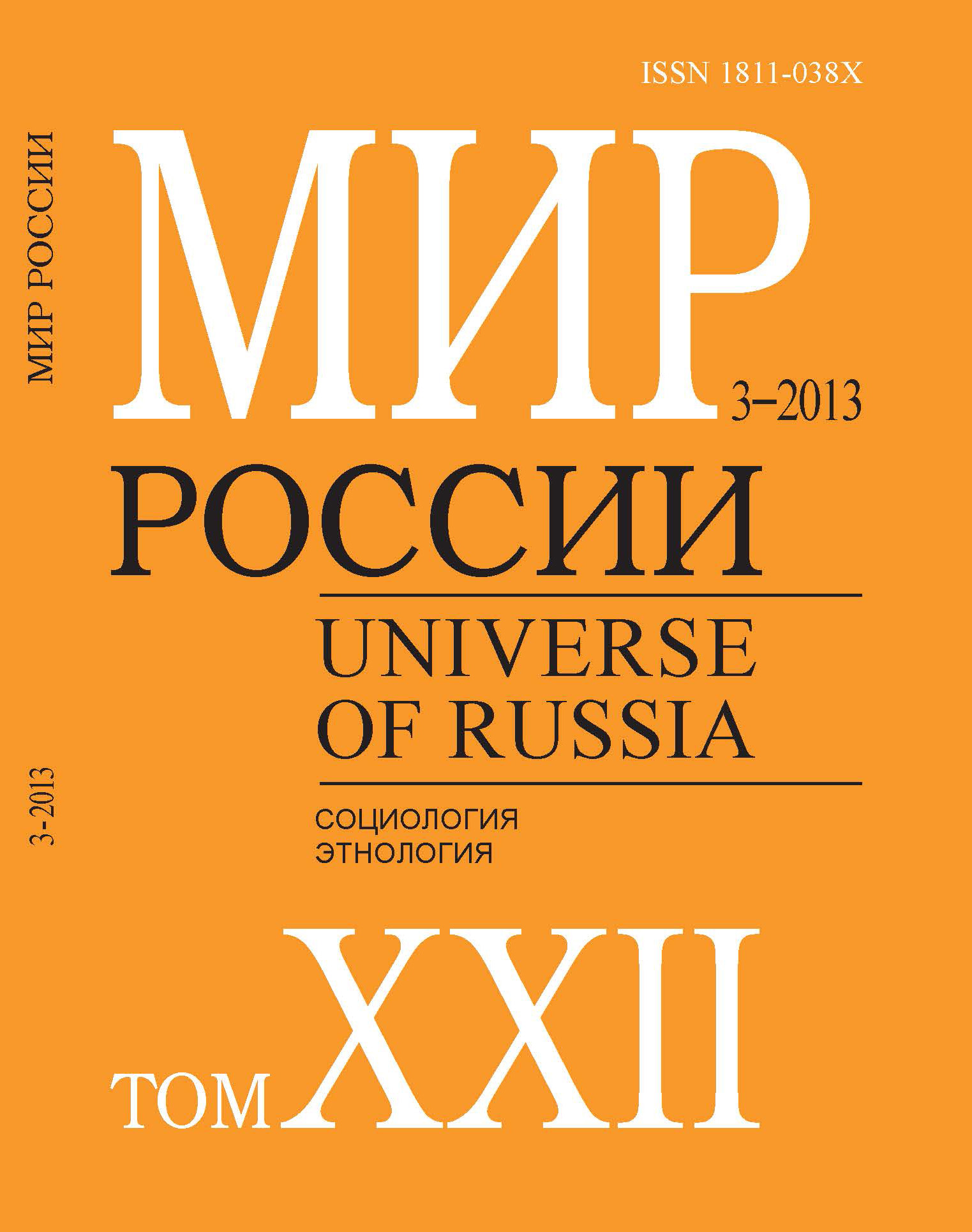Workers in Reforming Russia as a Subject of Management and an Agent of Labor
Abstract
Galina Bessokirnaya — Senior Research Fellow, Institute of Sociology (Russian Academy of Sciences). Address: Bldg. 5, 24/35, Krzhizhanovskogo St., Moscow, 117218, Russian Federation. E-mail: gala@isras.ru
Alexandr Temnitskiy — Senior Research Fellow, Institute of Sociology (Russian Academy of Sciences). Address: Bldg. 5, 24/35, Krzhizhanovskogo St., Moscow, 117218, Russian Federation. E-mail: taleksandr@list.ru
The effectiveness of organizing worker activity can be judged by assessing worker labor attitudes. More precisely, this can be done via different established measurements, such as reaching particular production goals, keeping a certain quality of work, following a particular labor discipline, or satisfaction with work as a whole. However, the only positive tendency in work management perceived by workers was about the improvement of work quality control.
The most valued qualities among Russian workers with respect to their workmates are integrity, readiness to assist in work, honesty, diligence, and justice, rather than aspiration for professional growth and/or a pay rise. The persistence and strengthening of these traditional labor ethics is accompanied with the decreasing importance of such qualities as desire to acquire new skills, initiative, autonomy, i.e. those which are, in fact, most of all demanded in the market economy.
Today there is no sufficient empirical data to claim anything about the formation of certain sociocultural preconditions for collective action among Russia’s modern workers. Even workers with a higher degree of autonomy do not show any remarkable signs of exacting attitudes towards the management: starting with issues of work organization and on to participation in production management. Distinctive features of such workers are their higher level of conformism in relations with the management, positive susceptibility to standard requirements, and higher rates of labor return.
Workers’ labor autonomy can be viewed as a stratification criterion, which along with higher skills and respective wages brings them to a level of worker aristocracy, strengthening their employment prospects and position in negotiating further benefits.
On the other hand, the autonomy of Russian workers is loosely related to organizational goals, for instance, increasing labor productivity. Unlike their Western colleagues, Russian workers’ autonomy is more likely a factor of indiscipline than responsibility in work.
The formation of active individual and collective identities among Russian workers is at its initial stage and is suppressed not only by the practices of management, but also by labor practices and traditions rooted among the workers themselves. There are no visible changes in managing worker labor activity, though these changes are demanded by the current situation. Without motivated participation of managers in the formation of a conscientious worker — a worker constantly seeking to increase his or her professional competence, to be responsible for the production results at his or her workplace — it is impossible for them to become an organic subject to management or become real subjects of work.






